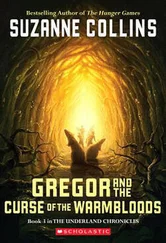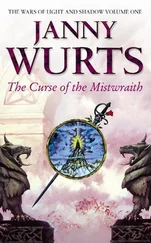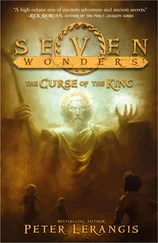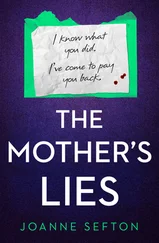In her eyes, the spring.
What have we given?
He has seen what the yellow eye sees; he has prayed in the abandoned cathedral among the dry bones, kneeling in the ruins; he has heard his name spoken by the high wind, by the dry limbs strumming the sterile air.
He has known these things. He is the monstrumologist. Too long he has been in the desolation.
Now, in her eyes, the abundance.
Some would judge them. I do not. If it was a sin, it was sanctified—the trespass consecrated by the act itself. He met himself in the purity of her eyes and obtained absolution upon her altar.
In the outer room their shadows meet and become one. The starving man eats; he drinks his fill from the pure waters overflowing. Her sweet breath. Her skin golden in the firelight. For a moment, at least, he tastes what his enigmatic mistress, the one for whom he rejected this love, cannot provide. In the abundance of her emerald eyes, Pellinore Warthrop found himself in another human being at last.
FOLIO VI
Reparation
“IN THIS METROPOLIS, LET IT BE UNDERSTOOD, THERE IS NO PUBLIC STREET WHERE THE STRANGER MAY NOT GO SAFELY BY DAY AND BY NIGHT.”
—JACOB RIIS
TWENTY
“A Beautiful Day”
He burst into my room early the next morning bearing a tray burdened with eggs, toast, pancakes, sausages, cranberry muffins, apple cobbler, and orange juice. My startled expression upon this completely unexpected and uncharacteristic display of largess did not go unnoticed. He laughed aloud and placed the tray before me with a flourish; he even snapped the napkin open and arranged it with great formality around my bandaged neck.
“Well, Master Henry,” he cried in a disconcertingly joyful voice. “You look terrible!” He strode to the window and threw back the curtains. Brilliant sunlight flooded the room. “But it is a beautiful day—a beautiful day! Truly, the kind of day that stirs the slumbering poet in a man. We’ve been much too long in the doldrums, you and I, and we must work to remedy our dour outlook. Without hope a man is no better than a draft horse pulling the heavy dray of his woes.”
He laid a hand upon my forehead. He measured my pulse. He examined my eyes. He chuckled when I stared with near incomprehension at the feast laid before me.
“No, you are not suffering from a hallucination. Eat up! I have decided to skip this morning’s colloquia and explore a bit of this marvelous city. Do you know I have been coming here for fifteen years and have barely seen it? I wear a path from the hotel to the Society and back again, blinders firmly in place like the dray horse of my metaphor, never venturing off the beaten path . . . too much in love with routine—and routine is a kind of death too. What? Why are you looking at me like that? Does your throat hurt too much to speak?”
“No, sir.”
“How is your stomach? Do you think you can eat?”
I picked up the fork. “I think so, sir.”
“Marvelous! I’ve been thinking . . . first we should take the ferry over to Liberty Island to have a look at Monsieur Bartholdi’s statue. You know, he is a friend of mine—not Bartholdi. The builder, Eiffel. Well, not precisely a friend, more of an acquaintance. An interesting little story about Eiffel. As you know, the International Exhibit is next year in Paris, and the government wants to commission a suitable monument to commemorate the centennial of the revolution. Well! Eiffel wrote to me about his plans to—”
The ringing of the telephone interrupted him. He dashed from the room. I sipped my orange juice—“golden nectar,” Lilly had called it—and heard him say, “Yes, yes, of course. I shall be right down.”
He appeared in the doorway, his entire being transformed. Gone were the uncharacteristic sparkle in his eye and the rare spring in his step.
“I must go,” he said.
“Why?” I asked. “What’s happened?”
“It is . . . You should stay here, Will Henry. I don’t know how long I’ll be.”
I placed the tray to one side and threw back the covers. He watched impassively as I struggled out of bed and stood swaying in my stocking feet.
“I feel fine, sir. Really, I do. Please take me with you.”
A young officer of the Metropolitan Police Department came forward as we stepped off the elevator. Short of stature, dressed in a freshly starched uniform, with a shock of red hair and a round baby face sprinkled with freckles, he looked much too young for the role, like a child playing dress-up. He saluted Dr. Warthrop smartly and introduced himself as Sergeant Andrew Connolly. We followed him to a brougham carriage waiting at the curb.
Warthrop had been right. It was a beautiful day, chilly but cloudless, the bright morning sun etching sharp shadows and chiseling the buildings into exquisite relief. As we rattled south within sight of the choppy waters of the East River, I glanced at the doctor, wondering if I should risk asking him again what had happened—though I was certain it could be only one thing: John Chanler was dead.
Our carriage drew up before a block-length structure on the banks of the river—Bellevue, the nation’s oldest public hospital. We followed Sergeant Connolly through a side door, up the dimly lit stairs to the fourth floor, and then down a long, narrow corridor whose walls had been painted a ghastly institutional pale green. Connolly knocked once upon the door at the terminus of this depressing passageway.
We were admitted at once by another uniformed officer who, with Connolly, stood at rigid attention by the door throughout the tense scene that followed.
The room was icy cold; the autumnal wind whistled through the broken window over the bed. A knot of plainclothes detectives were gathered around the foot of it, watching two of their colleagues crouching over something on the floor. One of the men—an imposing figure with an impressive chest and an equally impressive mustache—turned when we entered. He scowled, his full lips clamped tightly around an unlit cigar.
“Warthrop. Good. Thank you for coming,” he said in a thick Irish brogue. His gratitude was expressed gruffly, a formality to be promptly dispensed with.
“Chief Inspector Byrnes,” the doctor returned tightly.
“But what’s this?” asked Byrnes, glowering at me. “Who is this child and why is he here?”
“He is not a child; he is my assistant,” returned the monstrumologist.
I was a child, of course, in most men’s eyes, but the doctor saw things differently from most men.
Byrnes grunted noncommittally, studying me from beneath his bushy eyebrows, the right side of his prodigious mustache twitching. Then he shrugged.
“He’s over here,” the chief detective of the Metropolitan Police said. “Watch your step; it’s slippery.”
The men at the foot of the bed moved aside, like a human curtain pulling back. Lying on his back in a pool of coagulating blood was Augustin Skala—or what was left of him. I might not have recognized him if not for the size of the man and the tattered peacoat, for Augustin Skala had no face and no eyes. The empty sockets sought out the blank canvas of the off-white ceiling tiles.
His shirt had been torn open, exposing his hairy torso, in the middle of which yawned a hole the size of a pie plate. Protruding from the hole’s jagged lip was a portion of his dislodged heart, partially ripped from its moorings and missing large bite-size chunks.
It was the heart that drew Warthrop’s attention. He knelt beside the body, heedless of the tacky blood, to examine it.
“The nurse found him around seven o’clock this morning,” said Byrnes.
“Where have you taken Chanler?” the doctor asked, not turning from his task.
Читать дальше












